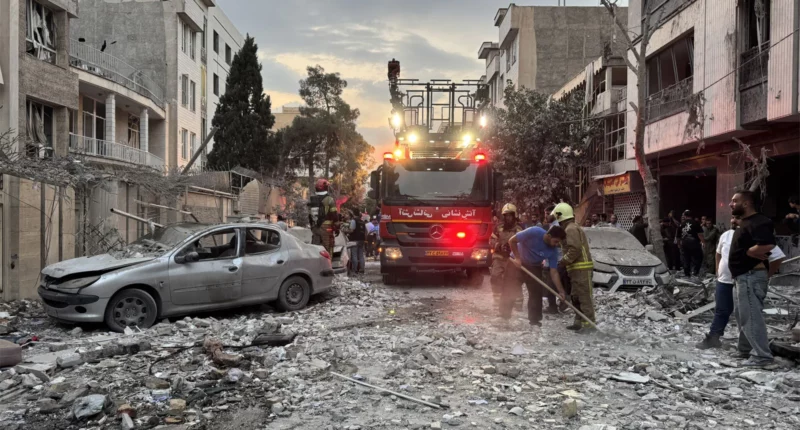Share this @internewscast.com
Israel is gearing up for a potential new offensive against Iran as early as late August or before December, with both sides preparing for a more violent clash than their June conflict, raising alarms that the United States will once again be pressured into responding and entangling itself in yet another Middle Eastern war it can ill afford.
Importance: The rising tensions pose a significant risk of drawing the US into an extensive and draining conflict, which could deplete resources and reveal weak points in missile stockpiles. This diversion could shift attention away from domestic issues, while potentially destabilizing the region, affecting global energy markets and security.
Current developments: With Israel hinting at a potential new assault on Iran, Tehran has threatened immediate and strong retaliation, indicating a potential conflict that may compel the US to step in to defend its ally.
- Israeli officials, including Defense Minister Israel Katz, have warned of imminent conflict to block Iran’s nuclear ambitions, relying on US-supplied missile defenses.
- Trump’s response may decide the next war’s scope, as his limited strikes sparked MAGA infighting and exposed US missile shortages.
- The US faces pressure to replenish Israel’s missile interceptors, with 25% of its THAAD stockpile already depleted in the June war.
Background: Israel’s strikes in June targeted Iran to undermine its nuclear ambitions and shift regional power balances. However, they had limited success, failing to secure US backing or destabilize the Iranian regime. These actions only intensified Iranian patriotism and revealed weaknesses in Israeli defenses. During Trump’s presidency, US engagement was minimized to prevent escalation, but the ceasefire left underlying tensions unresolved.
Complexities: Israel’s partial gains, like disrupting Iranian command briefly, inadvertently strengthened Iran’s regime as it fostered national unity and uncovered flaws in its deterrence. This has led Tehran to gear up for a decisive, overwhelming counterattack in future conflicts to avert repeated Israeli assaults aimed at long-term dominance.
Subtle dynamics: Israel’s “mowing the grass” approach, involving preemptive strikes to preserve military dominance, risks tying the US into a perpetual cycle of intervention. These limited engagements fail to address core issues, inviting further escalation.
Conclusion: As Israel considers another strike to block Iran’s recovery, the pressure on the US to intervene increases. However, doing so could spark a fully-fledged war more costly than previous ones, emphasizing the necessity for Washington to avoid involvement in another overseas conflict prioritizing allied interests over American ones and focus on diplomatic solutions to prevent ongoing escalation.

















